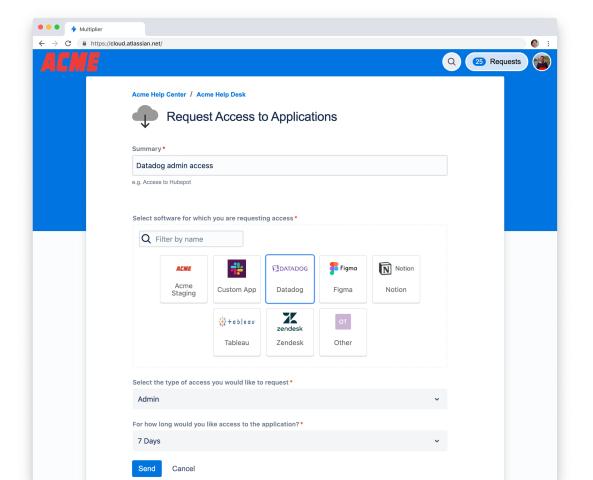As the world shifts towards a more digital economy, the concepts of decentralized finance (DeFi), gasless wallets, and smart accounts are becoming more prominent. This article aims to demystify these technologies and explore their implications on the future of finance.
Understanding the Basics of Decentralized Finance
Decentralized Finance, commonly referred to as DeFi, is an innovative approach to financial services that removes intermediaries like banks. Instead, it leverages blockchain technology to allow users to conduct transactions directly.

The Evolution of Finance: From Traditional to Decentralized
The evolution of finance has been profound. Traditional finance has relied heavily on a centralized system where institutions manage and control assets. However, with the introduction of cryptocurrencies and blockchain technology, users are given greater control over their financial assets.
This shift began with Bitcoin, which challenged traditional monetary systems. Over the years, various altcoins and decentralized platforms have emerged, leading to the vibrant DeFi landscape we see today. The rise of Ethereum, for instance, introduced the concept of smart contracts, which further expanded the possibilities for decentralized applications, allowing developers to create a wide range of financial services that operate autonomously.
As DeFi continues to grow, it is also reshaping the way we think about trust in financial transactions. In a traditional setting, trust is placed in institutions and regulatory bodies; in DeFi, trust is embedded in the code itself. This paradigm shift not only enhances transparency but also fosters innovation, as developers and entrepreneurs can build upon existing protocols to create new financial products and services.
Key Components of Decentralized Finance
Several key components contribute to the DeFi ecosystem, including:
- Smart Contracts: These are self-executing contracts with the terms directly written into code.
- Decentralized Applications (dApps): These are applications built on blockchain platforms that operate independently of centralized authorities.
- Liquidity Pools: These are reserves of tokens locked in smart contracts to facilitate trading on decentralized exchanges.
Together, these components enable users to lend, borrow, trade, and earn interest on their assets without relying on traditional banks. Additionally, the concept of yield farming has gained traction, allowing users to maximize their returns by strategically allocating their assets across various protocols. This practice not only enhances liquidity but also incentivizes participation in the DeFi ecosystem, creating a dynamic environment where users can actively engage and benefit from their investments.
Moreover, the rise of stablecoins has played a crucial role in the DeFi landscape. These digital currencies are pegged to stable assets, such as the US dollar, providing a reliable medium of exchange within the volatile crypto market. By offering a stable alternative, stablecoins facilitate smoother transactions and reduce the risks associated with price fluctuations, making them an essential component for users looking to navigate the DeFi space effectively.
The Role of Gasless Wallets in Decentralized Finance
Gasless wallets represent a significant advancement in the DeFi space, offering users a seamless experience without the burden of transaction fees associated with blockchain networks.

What are Gasless Wallets?
Gasless wallets are digital wallets that allow users to conduct transactions without needing to hold tokens for transaction fees, also known as "gas." Instead, gas fees can be sponsored by third parties or included as part of the transaction itself, enhancing the user experience.
This functionality is particularly important for users who may not hold sufficient cryptocurrency to cover transaction fees but still wish to participate in DeFi activities. By removing the need for users to manage gas fees, gasless wallets democratize access to decentralized finance, allowing a broader audience to engage with innovative financial products and services.
Benefits of Using Gasless Wallets
The advantages of gasless wallets include:
- User Accessibility: Users can engage in DeFi without the need to manage gas fees, lowering the barrier to entry.
- Cost Efficiency: They eliminate the frustration of fluctuating gas prices during peak network congestion.
- Streamlined Transactions: Transactions can be executed more quickly, fostering a more efficient trading experience.
As a result, gasless wallets are poised to broaden the DeFi user base and encourage greater participation. Furthermore, these wallets can significantly enhance the user experience by integrating features such as automatic gas fee estimation and optimization, enabling users to make informed decisions without the stress of real-time price fluctuations. This level of convenience is particularly appealing to newcomers who may find the intricacies of blockchain technology daunting.
Moreover, gasless wallets can also facilitate the growth of decentralized applications (dApps) by attracting users who might otherwise be deterred by transaction costs. As developers continue to innovate within the DeFi ecosystem, the introduction of gasless wallets can lead to a more vibrant marketplace where users can explore various financial instruments, from yield farming to liquidity provision, without the constant worry of incurring high fees. This evolution not only benefits individual users but also contributes to the overall health and sustainability of the DeFi landscape.
Read Also: Passkeys and Account Abstraction: Forging the Future of Crypto Wallets
Exploring the Concept of Smart Accounts
Smart accounts are a groundbreaking aspect of DeFi, providing users with functionality and flexibility that exceed conventional wallets.
Defining Smart Accounts in Decentralized Finance
Smart accounts can be thought of as enhanced digital wallets that incorporate smart contract functionality. They allow users not only to store assets securely but also to automate transactions and manage finances more intelligently.
In essence, smart accounts are programmed to execute specific actions based on predetermined conditions, facilitating complex trading strategies and automated investing. This programmability transforms the way users interact with their assets, enabling them to create personalized financial strategies without the need for constant oversight. For instance, a user could set up a smart account to automatically reinvest earnings from yield farming into new opportunities, optimizing their returns without manual intervention.
How Smart Accounts Contribute to Decentralized Finance
Smart accounts can effectively enhance DeFi through:
- Automation: Users can set rules for their assets, allowing for automatic buying, selling, or swapping based on market conditions.
- Security: Advanced security features are integrated to protect user funds from unauthorized access or hacks.
- Customizability: Users can tailor various parameters according to their preferences and requirements.
Such features make smart accounts a valuable tool for both novice and experienced investors in the DeFi landscape. Moreover, the integration of decentralized identity solutions with smart accounts can enhance user privacy and control over personal data. Users can engage in DeFi activities without exposing their entire identity, which addresses one of the significant concerns in the digital finance space. This privacy-centric approach not only fosters user confidence but also encourages broader participation in decentralized ecosystems.
Additionally, smart accounts can facilitate seamless interactions with various DeFi protocols, allowing users to engage in lending, borrowing, and staking with minimal friction. By connecting to multiple platforms through a single smart account, users can optimize their asset management strategies and take advantage of arbitrage opportunities across different exchanges. This interconnectedness exemplifies the potential of smart accounts to serve as a central hub for managing diverse DeFi activities, ultimately driving innovation and efficiency in the financial landscape.
The Intersection of Gasless Wallets and Smart Accounts
The integration of gasless wallets and smart accounts represents a significant step in advancing user experience and functionality within DeFi.
Enhancing Financial Transactions with Gasless Wallets and Smart Accounts
Combining the capabilities of gasless wallets with smart accounts enables users to conduct financial transactions effortlessly. This synergy could lead to a transformation in how transactions are initiated and executed, allowing even those unfamiliar with cryptocurrencies to engage with DeFi services.
Moreover, this intersection promotes increased usability, appealing to a wider audience and driving adoption.
Future Implications of Gasless Wallets and Smart Accounts in Decentralized Finance
As the DeFi ecosystem progresses, the adoption of gasless wallets and smart accounts could redefine financial interactions. The potential implications are vast:
- Increased User Adoption: More users will feel inclined to participate in DeFi when transaction fees and complexities are minimized.
- Innovative Financial Products: Financial institutions and developers will likely create new products leveraging these technologies, increasing versatility.
- Sustainable Financial Ecosystem: As more users embrace decentralized platforms, a more resilient financial ecosystem will emerge, reducing reliance on traditional systems.
Overcoming Challenges in Decentralized Finance
Although the prospects of gasless wallets and smart accounts are promising, challenges remain that must be addressed for widespread adoption.

Identifying Potential Hurdles in the Adoption of Gasless Wallets and Smart Accounts
Potential hurdles include:
- Security Risks: The reliance on smart contracts introduces possible vulnerabilities that could be exploited by malicious actors.
- User Education: Many users may lack the necessary understanding of how these technologies work, leading to potential mismanagement of funds.
- Regulatory Concerns: As DeFi continues to expand, governments may impose regulations that could limit functionality or impose barriers to entry.
Addressing these challenges will be critical for the success and longevity of DeFi solutions.
Solutions for a Seamless Transition to Decentralized Finance
To facilitate a smooth transition, several strategies can be adopted:
- Enhanced Education: Promoting educational resources and tutorials can empower users to confidently engage with DeFi.
- Robust Security Protocols: Implementing multi-signature wallets and regular audits can help bolster security.
- Collaboration with Regulators: Working alongside regulatory bodies to create a framework that balances innovation and user protection.
By addressing these aspects, the future of decentralized finance, along with gasless wallets and smart accounts, can promise more inclusive, secure, and efficient financial services for all.













